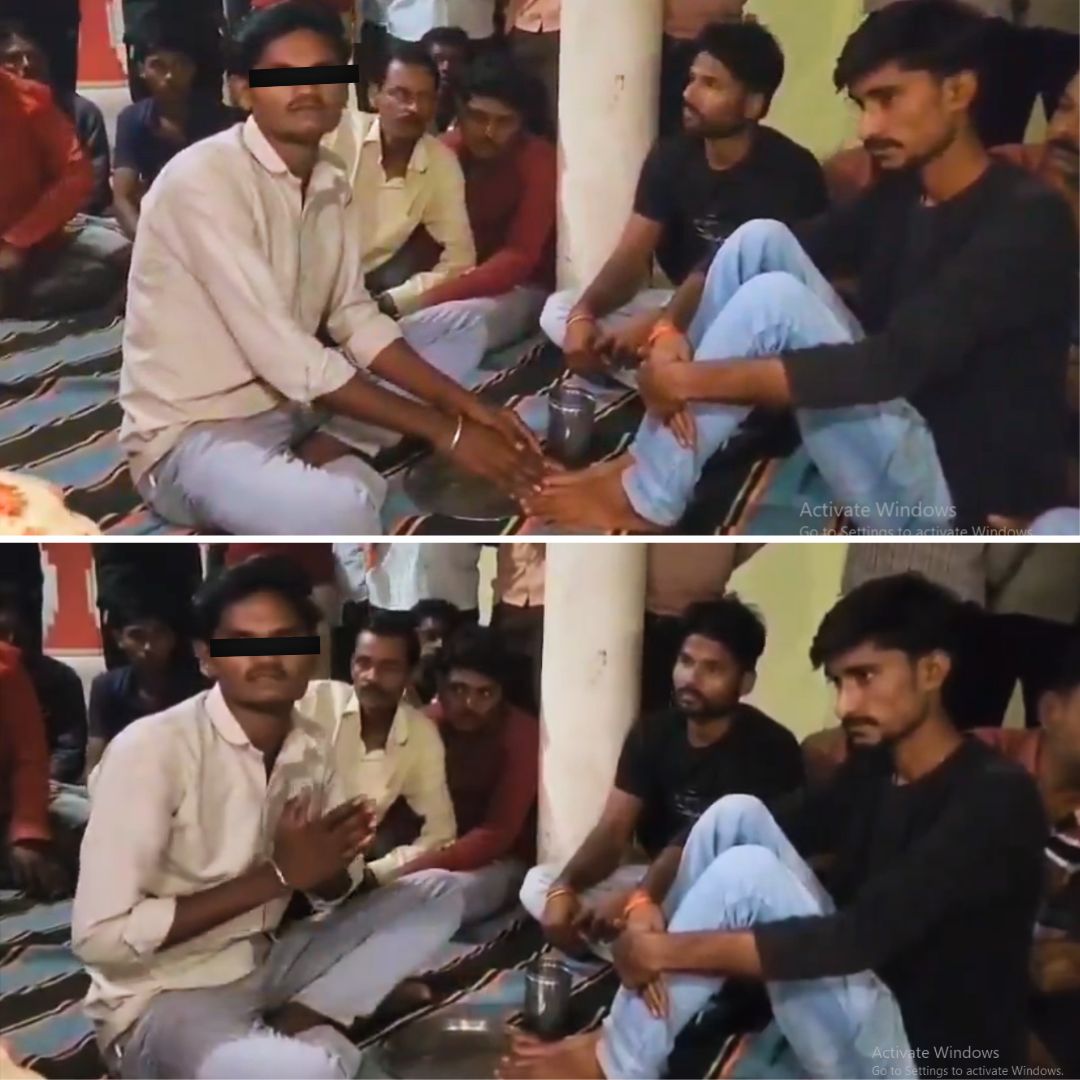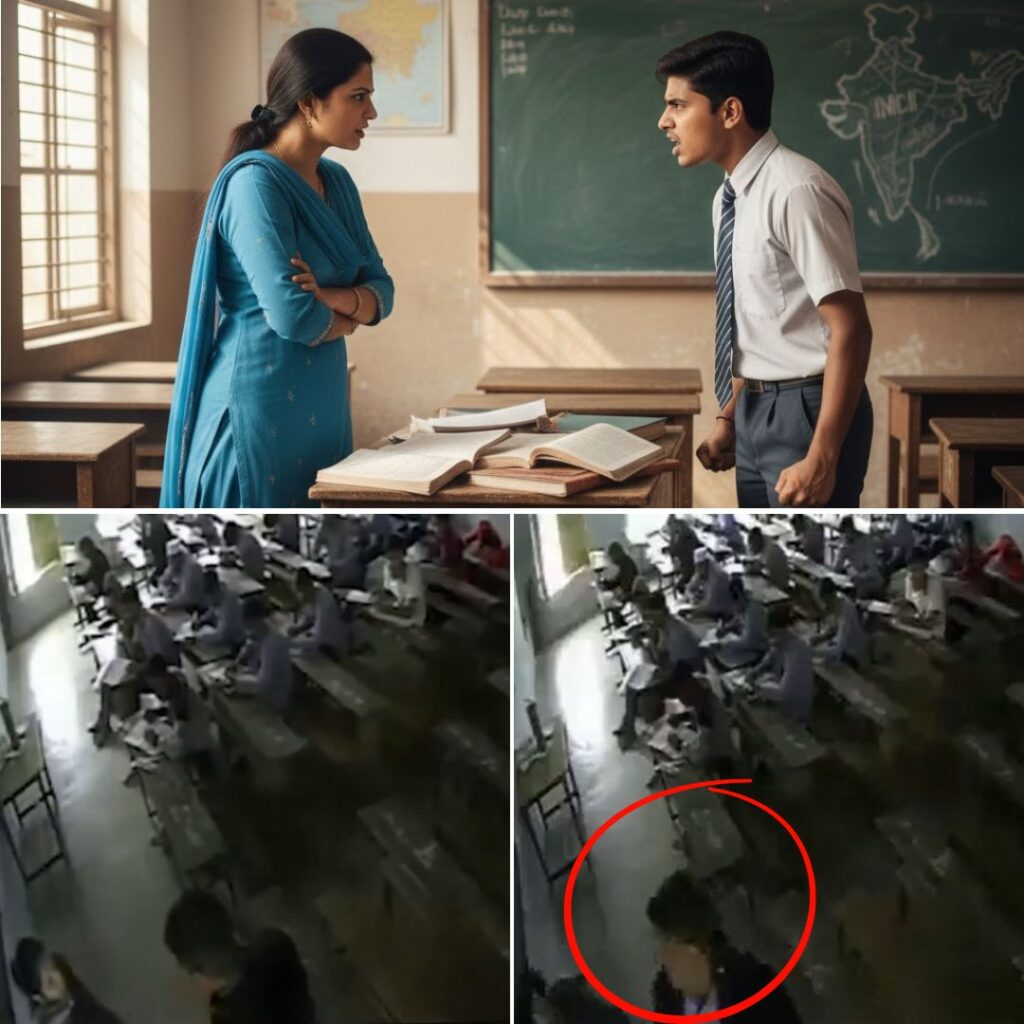The quiet village of Sataria in Damoh district, Madhya Pradesh, has been thrust into the national spotlight following a disturbing incident where a young man was forced to wash the feet of a local Brahmin man and drink the same water as punishment for sharing an AI-generated meme mocking him on social media.
This public act of humiliation, executed under the authority of village elders, has exposed sharp caste divides intensified by the ruthless misuse of new technology, and it has ignited strong reactions from officials and citizens alike.
Background to the Incident
The incident took place on October 10 during a village panchayat meeting, a traditional forum where communal disputes are often resolved. The victim, Parshottam Kushwaha, a 22-year-old member of the Other Backward Classes (OBC), had created and circulated an AI-generated meme that portrayed Anuj Pandey, a Brahmin man, wearing a garland made of shoes.
The meme referred to a recent incident where Pandey had been fined and publicly humiliated by the village for selling alcohol, a violation of the village’s self-imposed ban on liquor sales.
Kushwaha, under pressure, deleted the meme and offered a public apology; however, tensions had escalated irreversibly. The elders decreed that Kushwaha must undergo a ritual humiliation to atone for his “insult,” demanding that he wash Pandey’s feet, drink the water used for washing, apologise in front of the community, and pay a fine of ₹5,100.
The entire ordeal was filmed and widely circulated on social media, amplifying the controversy and highlighting the degrading nature of the punishment.
Official and Community Responses
The police responded swiftly after the video went viral, registering an FIR against six individuals including the accused man. Superintendent of Police Abhishek Tiwari affirmed that the authorities were conducting a thorough probe and warned that any attempts to disturb communal harmony would be dealt with firmly. The FIR includes sections that pertain to assault, intimidation, and acts promoting enmity between different groups.
Both Kushwaha and Pandey have urged people not to politicise the incident and have appealed for peace and communal harmony in their village. Kushwaha requested the removal of the viral footage, expressing his distress over the shameful episode. Local leaders, meanwhile, have called for introspection and dialogue within the community to prevent such humiliations from recurring.
The Intersection of Caste, Technology, and Social Media
This incident lays bare the complex and sometimes combustible relationship between caste identities, emerging technologies, and social media dynamics in rural India. The use of AI-generated content to create the meme exemplifies how technological tools meant for creativity and entertainment can easily be weaponised to deepen social divides and inflame old prejudices.
Social media’s role in rapidly spreading provocative content, especially in sensitive caste contexts, is increasingly under scrutiny. The AI element compounds the issue, making it harder for communities to detect misinformation or offensive material, and making the resulting conflicts much more incendiary. This case raises urgent questions about how rural and semi-urban populations can be adequately educated in digital literacy and ethical use of AI tools.
The Logical Indian’s Perspective
The Damoh incident is a stark reminder of how digital provocations combined with entrenched caste prejudices can inflict real-world pain and humiliation, undermining community fabric and social coexistence. The Logical Indian stands firmly for a society built on empathy, respect, and peaceful dialogue, particularly as India navigates the uncharted waters of AI-driven communication.
With rapidly advancing technologies increasingly shaping social interactions, there is an urgent need to embed education about digital ethics, communal respect, and empathetic engagement at all levels-from grassroots communities to online platforms. Such tragedies can only be prevented if society collectively moves towards kindness and understanding rather than punishment and humiliation.
#Casteism The terror of casteist Manuvadi mindset is rising. In Damoh district, Madhya Pradesh, a young OBC man was forced by Brahmins to wash their feet and drink that water. These so-called “civilized” people still see SC, ST, and OBCs as “Shudras” and “untouchables.” pic.twitter.com/oozr6N2SMP
— The Dalit Voice (@ambedkariteIND) October 12, 2025












